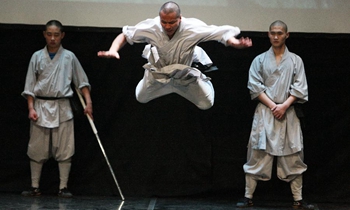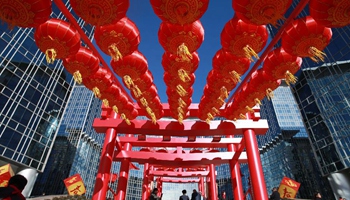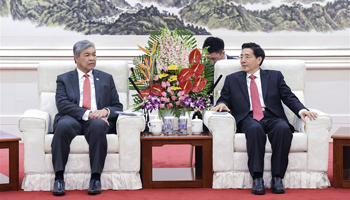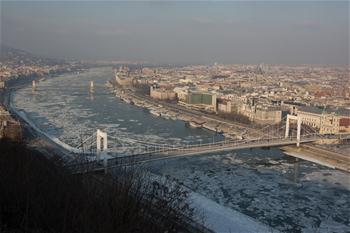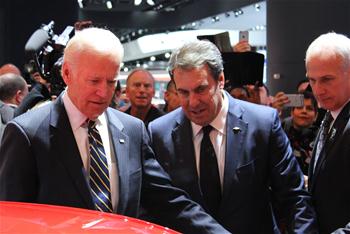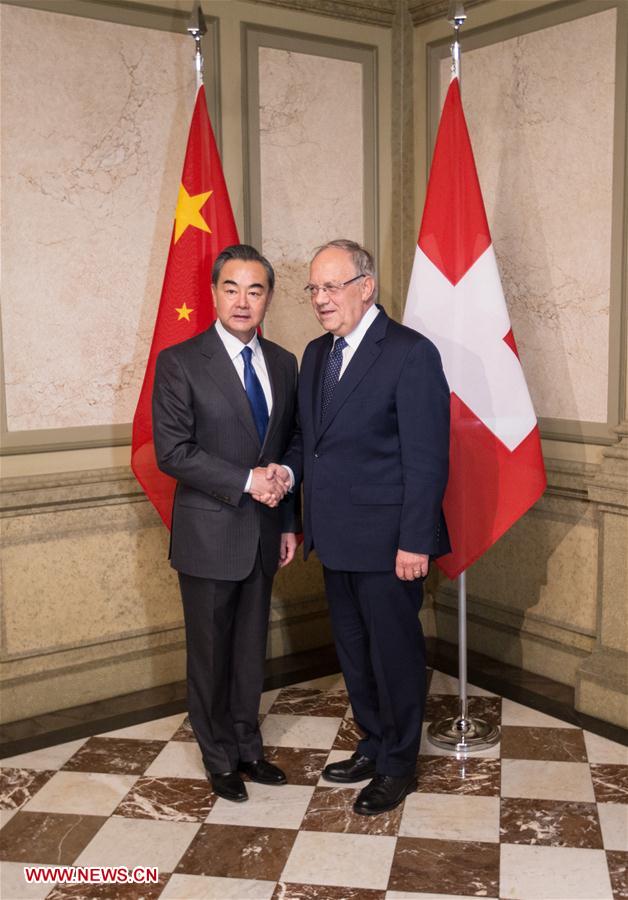
Chinese Foreign Minister Wang Yi (L) shakes hands with Swiss President Johann Schneider-Ammann in Bern, Switzerland, on Dec. 12, 2016. (Xinhua/Xu Jinquan)
GENEVA, Dec. 12 (Xinhua) -- China's Foreign Minister Wang Yi on Monday said that both Switzerland and China should jointly voice their opposition to protectionism, and actively explore more efforts to safeguard the world's free trade mechanism.
Meeting with Swiss President Johann Schneider-Ammann on Monday, Wang said that the two sides should play their respective advantages so as to provide a new impetus to the world economic growth.
The Chinese foreign minister paid an official visit to Switzerland from Dec. 10 to 12 at the invitation of his Swiss counterpart Didier Burkhalter.
Calling Switzerland an important cooperation partner of China in Europe, Wang said China has long considered that its ties with Switzerland takes the lead in the development of China-Europe relations.
Earlier in April this year, during the state visit of Schneider-Ammann to China, both countries confirmed to establish an innovative strategic partnership, the first of its kind China has ever developed with a foreign country.
The Sino-Swiss relations have become a successful win-win model for different social systems, different stages of development and different sizes of countries in terms of peaceful coexistence and cooperation, Wang said.
He added that in the future China is willing to strengthen high-level exchanges with the Swiss side, and deepen all-round cooperation in various fields.
During their talks, Schneider-Ammann spoke about the initial effects of the free-trade agreement with China and noted that there had been a promising increase in Swiss exports to the Chinese market since the agreement's entry into force.
According to the latest figures provided by the Swiss government, in the economic domain, China is Switzerland's biggest trading partner in Asia.
During the visit, Wang also met with Swiss Federal Councillor and Foreign Minister Didier Burkhalter on Monday and discussed bilateral relations and issues of common concern.
He also met with the top officials of the United Nations Office at Geneva, the World Health Organization and the International Olympic Committee.




